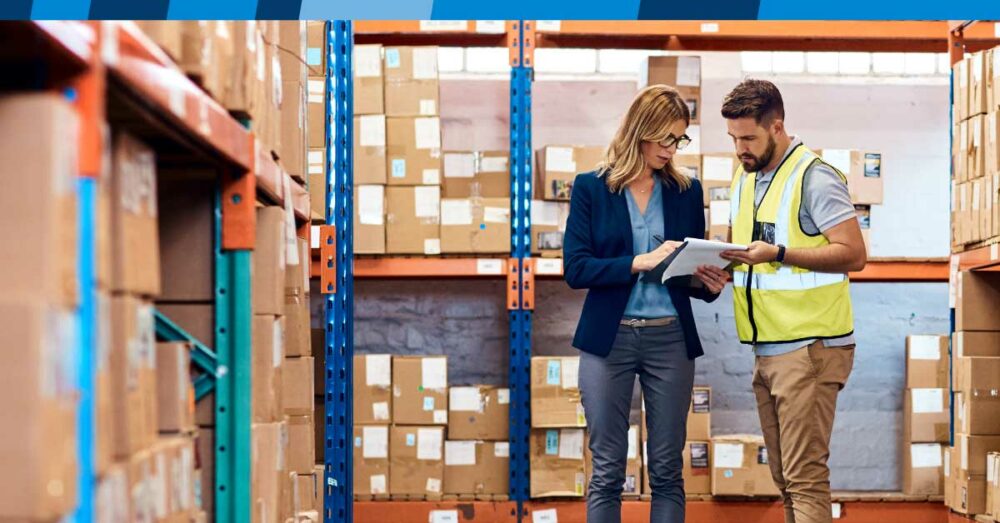FAQ: Third-Party Logistics Services & 3PLs
What role do 3PLs play in the greater logistics industry?
Logistics and transportation operations are an essential part of the supply chain process. A third-party logistics provider (known as a 3PL), is an outsourced company that helps businesses manage their logistics processes to achieve greater efficiency and reduce the costs involved with the transportation of goods. They can specialize in everything that is needed for the efficient movement and storage of goods and materials as they are transported through the supply chain. Outsourcing is a great solution for companies as their supply chains grow and they require assistance to manage logistics processes — no matter how big those companies are in size.
Most 3PLs are non-asset based. This means they do not own trucks but rather provide the expertise, technology and industry relationships to connect shippers with carriers and other supply chain partners.
What logistics services and modes do 3PLs offer?
A 3PL can offer a variety of logistics services, including warehousing, inventory management, picking and packing, transportation management, reverse logistics and even an RMA process strategy . Some 3PLs offer managed transportation solutions, providing extended involvement and responsibility over strategic and executional functions. This can range from a partial or complete outsource of your supply chain management needs.
Some logistics services and modes of transportation offered by 3PLs include:
- Truckload management
- Less-than-truckload
- Rail/intermodal
- Expedited shipping
- Managed transportation
- Supply chain management
- Technology integration
- Warehouse and inventory management
- Freight forwarding
What are the benefits of working with a 3PL as your third-party logistics solution?
Cost savings and scalability are two of the main reasons shippers choose to begin working with a 3PL. But there are several other benefits of bringing on a third-party logistics partner that allow you to:
- Tap into an existing carrier network, gaining access to thousands of carriers to support your freight volumes and capacity needs without the added stress of sourcing, qualifying and managing carriers.
- Gain access to state-of-the-art logistics technology for deeper insights into your shipping data while adding the convenience of route optimization and carrier selection.
- Leverage the experience and expertise of the team members at your 3PL, who should act as an extension of your own team.
At the end of the day, a 3PL is a partner who can help you create and execute a best-in-class logistics strategy.
How can 3PLs help shippers reduce costs?
There are many ways a third-party logistics provider can help you reduce shipping costs. 3PLs work with multiple shippers, which means they are moving a high volume of freight. They leverage this to secure the best rates from carriers. Working with a 3PL allows you to limit overhead in departments such as transportation, billing, IT, hiring and training. As your business grows, you don't need to hire new people to scale with it. Additionally, a 3PL can help create a strategy that streamlines processes and integrates the most cost-effective shipping methods for your freight. Advanced technology also allows shippers to avoid the added costs associated with purchasing and implementing their own transportation management system (TMS) for delivery and tracking functionality.
What industry certifications are important for 3PLs to hold?
Third-party logistics providers can hold several different logistics industry certifications. Depending on their specialties and the logistics services they offer, 3PLs may be certified for food storage, transporting hazardous materials or cross-border transportation, to name a few. Some certifications are given to the company, while others are obtained by individual employees.
The Transportation Intermediary Association (TIA) offers the Certified Transportation Broker (CTB) program. This is a widely recognized certification that requires employees to prove competencies in three categories: brokerage basics and basic business skills; contracts and pricing; and regulatory environment and legal issues.
How can my business implement a 3PL?
It is important to identify your needs and set goals prior to choosing a logistics partner. Successful partnerships are built on trust and alignment of core values. A 3PL, for example, should value their employees as much as you value yours. Goal and value alignment will help ensure you pick the right partner. Every 3PL has its own implementation methodology. As you assess potential partners, learn more about how they prioritize implementation to ensure a successful partnership. Your 3PL implementation strategy should include plans for technology integration, employee training, data analytics and reporting, escalations, scheduled communications and ongoing business reviews.
What is the current size of the logistics industry and the third-party logistics market?
In 2020, the logistics industry in the United States was worth approximately $2 trillion. The third-party logistics market was valued at approximately $190 billion the same year. GlobalTranz is the fourth largest freight brokerage in the U.S.
What key trends does GlobalTranz see in the third-party logistics industry?
To better help shippers navigate the ever-evolving third-party logistics industry, GlobalTranz has put together its 2022 logistics and supply chain trends and outlook. It covers the state of capacity, new legislations and regulations, factors affecting shipping costs, strategies for reducing friction in your LTL and truckload shipping operations and more.
Contact us today for a free quote or transportation analysis to learn more about GlobalTranz and see first-hand how a 3PL can help you manage your logistics services.

